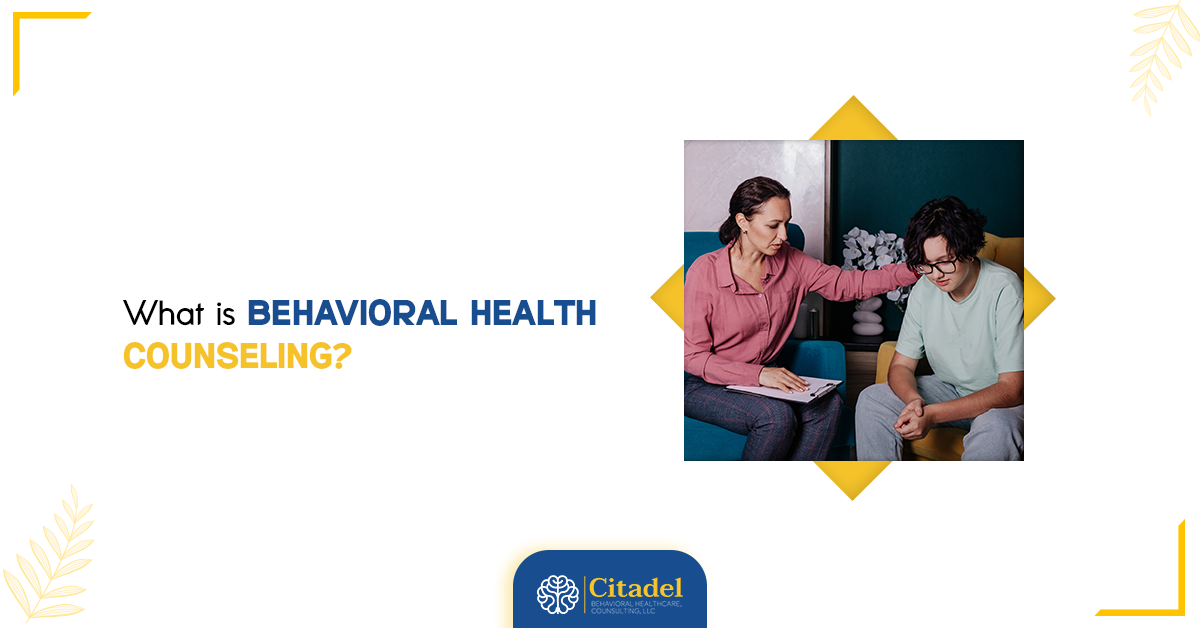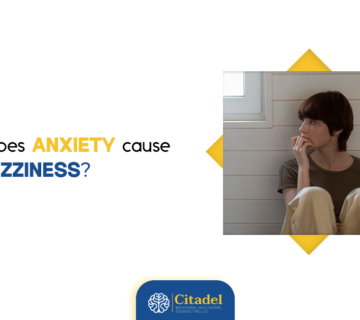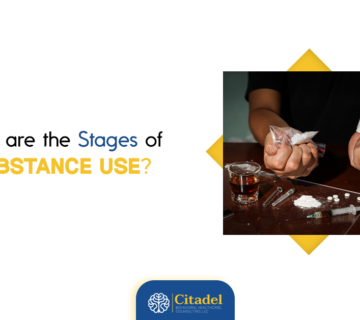Behavioral health counseling is vital. It’s about dealing with mental and emotional hurdles.
This care strives to understand how behaviors, thoughts, and emotions impact overall health. It focuses on finding ways to improve.
But what is behavioral health counseling? How can it change your life?
This blog explains this critical area, its purpose, benefits, and the people who offer this support.
What is Behavioral Health Counseling?
Behavior is critical to our physical and emotional health.
Our choices—habits, routines, responses shape how we feel and function.
Behavioral health counseling comes in when certain behaviors stop personal growth, joy, or relationships. But what does that imply?
Defining Behavioral Health and Its Importance
Behavioral health looks at how our actions affect our well-being.
Certain habits like dealing with stress badly, eating poorly, misusing substances or overbearing stress can lower our quality of life.
Behavioral health counseling gives support and control back to struggling individuals.
A behavioral health counselor works with individuals to figure out these habits and plan changes.
Without facing these habits, problems can grow and bring about anxiety, depression, or even physical sickness. That’s why behavior counseling plays such an essential role in bettering oneself.
What Does Behavioral Health Counseling Include?
It usually means a partnership with professionals who specialize in this field. These could be licensed therapists, psychiatrists, or a behavioral care counselor.
They guide and support people.
Therapists use proven methods like Cognitive Behavioral Therapy (CBT), mindfulness, and motivational coaching.
Their goal? To foster healthier habits, grow problem-solving abilities, and help clients have happier lives.
They can help with many situations or problems like:
- Stress and anxiety.
- Overcoming addictions or unhealthy habits.
- Coping with grief, trauma, or life changes.
- Bettering interpersonal relationships.
- Managing chronic illnesses with a behavioral approach.
The Job of a Behavioral Health Counselor
A behavioral health counselor is like a partner and guide.
They assist clients in understanding how their thoughts and actions change their emotional and mental states.
They offer tools, strategies, and a secure place for people to express their emotions and create positive changes.
What Happens In a Session?
Typically, when visiting a behavioral care counselor, the initial phase is pinpointing the problems and mapping out objectives.
Each meeting is crafted to match your distinct needs. Issues like wrestling with a challenging past event, rejecting harmful self-thoughts, or building improved practices are all areas where your behavioral health counselor will lend a hand. The journey might involve:
- Mastering relaxation and coping methods.
- Constructing effective solutions for daily obstacles.
- Establishing doable, sensible goals for healthier routines.
The ultimate target is enhancing your emotional and mental well-being through fostering positive alterations in behavior.
How Are Behavioral Health Counselors Different from Traditional Therapists?
Instead of delving into deep personal issues like traditional therapy, behavior counseling focuses on current actions and habits.
Their aim? To help you see positive, measurable changes in everyday life.
Although they work alongside therapists and other mental health professionals, behavioral health counselors have a unique job.
They bridge the gap between our behavior and its impact on our everyday life.
Who Can Really Benefit From Behavioral Health Counseling?
It’s for those willing to modify their behavior for a healthier, happier life.
This type of counseling is helpful for anyone, whether managing regular stress or grappling with intricate psychological conditions.
Here’s who could benefit:
- People with Mental Health Concerns: If you have anxiety or depression, counseling can help deal with bad habits.
- People with Chronic Illness: Having a counselor helps ease changes in health routines or lifestyles.
- Families Wanting Better Relations: In counseling, families strive to form stronger, healthier ties.
- People Fighting Addiction: Counseling on behavior helps combat addictive cycles.
Lots of people can benefit, but one thing remains true—you are helped to become your best self.
Starting Behavioral Health Counselor Sessions
Assessing and Setting Goals
Your first step is to grasp your own concerns deeply. A behavioral health counselor guides you through this.
They gather facts about your situation, struggles, and aspirations. They’re curious about your everyday life, habits, and any issues you encounter.
Developing a Plan of Action
After knowing your needs and the counselor, you embark on making a unique action plan.
This method is purely cooperative to always remember to focus on suitable strategies and solutions.
Active Sessions and Progress Tracking
In these sessions, you navigate your thoughts, feelings, and beliefs.
Most crucially, you also employ practical techniques to manage behaviors affecting your well-being.
Over a period, both of you will evaluate progress and revise tactics as required.
Why is Behavioral Health Counseling Good?
Engaging in behavioral health counseling makes all parts of life better. Look at these benefits:
- Better Emotion Handling: You learn ways to deal with stress and feelings.
- Improved Interactions: When you fix behavior issues, your relationships get better with family, friends, and work people.
- Better Mind Health: Trying new ways to handle thoughts can make your mind health a lot better.
- Better Life Habits: You start to eat better and exercise more with behavior counseling.
It can help your overall health. It doesn’t matter what’s going on in your life; a behavior counselor can open doors to a brighter, healthier tomorrow.
Breaking Stigma Around Behavioral Health Counseling
Many might feel unsure about asking for assistance due to worries of being judged. Or maybe they’re not clear about what behavioral health counseling is.
Self-care is not shameful. Turning to a behavioral health counselor is a sign of strength—not a sign of weakness.
Counseling isn’t just about chatting on therapeutic couches. It’s changing to become a teamwork-focused, forward-thinking process that blends well with daily life.
Reach Out to Citadel Behavioral Health
Are you eager to manage your mental and emotional health? Whether it’s stress, anxiety, or unhealthy routines, help is close by.
At Citadel Behavioral Health, our empathetic counselors are ready to steer you in every phase.
Get in touch with us now to set up a meeting.
FAQs
What is the meaning of behavioral health therapy?
It’s all about how actions, feelings, and thoughts affect mental and physical health. It means working with a guide to spot poor habits and make good changes.
What is an example of behavior counseling?
Cognitive-behavioral therapy (CBT) is one. Here, a guide helps individuals handle stress by swapping harmful thoughts for helpful ones.
What is the difference between mental health and behavioral health?
Yes, mental health targets emotional and mental states, say, addressing stress or depression.
Behavioral health covers these but also looks at how habits affect all-round health, like bad routines or ways of dealing with stress.
What is the behavioral approach in counseling?
This method seeks to understand and alter specific actions.
Reinforcement, acting out behaviors, and teaching skills help motivate healthy actions and decrease damaging habits.





No comment